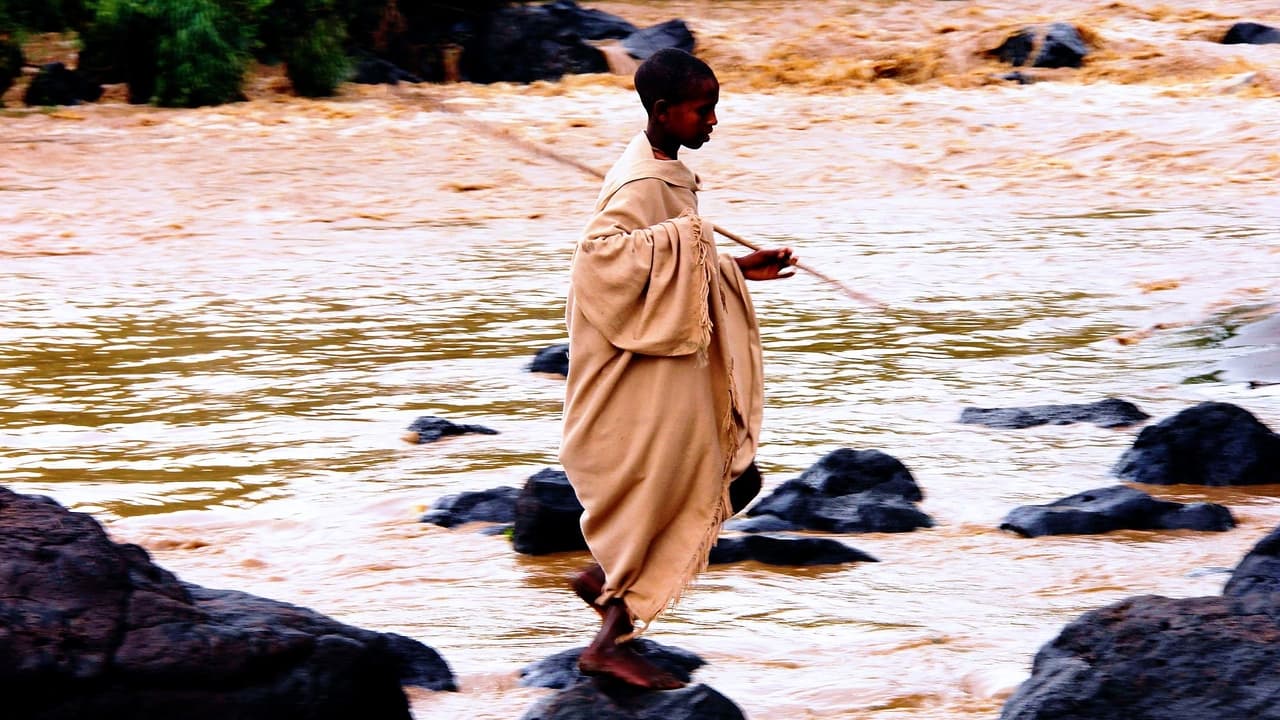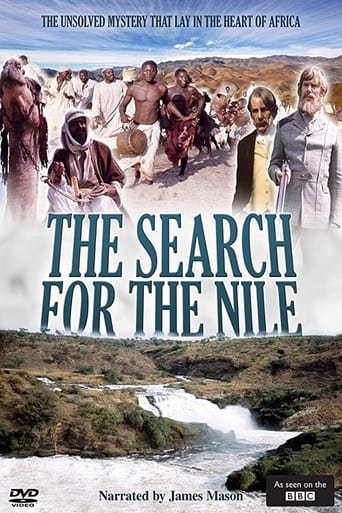SeeQuant
Blending excellent reporting and strong storytelling, this is a disturbing film truly stranger than fiction
Celia
A great movie, one of the best of this year. There was a bit of confusion at one point in the plot, but nothing serious.
Haven Kaycee
It is encouraging that the film ends so strongly.Otherwise, it wouldn't have been a particularly memorable film
Staci Frederick
Blistering performances.
powysa
Seek information on this 1971 big-budget 6-part series, and you'll seek in vain. No Wikipedia page, hardly any online presence at all. And yet at the time, it was fulsomely praised, received awards, was an internationally popular success. So why the present obscurity?Look no further than the content, which is obviously not what the BBC and Time-Life their American co-financer, in whatever form they now exist, have at least until very recently wanted to even take credit for, let alone promote.In contrast to modern portayals of past ages, which are usually peopled by 21st century ciphers in fancy dress, this feels like the real thing brought to life. And with no health warnings, signposting, PC tinkering etc. So you'll see evidence of slavery (by Arabs btw, not Europeans), black people behaving tribally, white people behaving like they were more socially advanced than others (which they were), men behaving like real men and women tagging along (and liking it!), all unchallenged, with the viewer left to make up his/her own mind about what's good/bad, right/wrong. Left to make an unprotected adult value judgement. Shocking.The production values are high, with true-to-reality location shooting. Gorgeous cinematography abounds, with no loathsome caught-in-the-middle-of-a-video-game HD in sight, just warm immersive 35mm film. The characters are an amazing range of larger-than-life oneoffs. There are dramatic situations and intelligent dialogue throughout.The production is not flawless; the team evidently had their agenda. Speke's motives are relentlessly darkened, perhaps to augment his great conflict with Burton: unnecessary, the reality was quite dramatic enough. Baker's 'wife' (they weren't - shock, horror - actually married at the time) is reduced to an eye-candy cipher. Livingstone has a halo practically grafted onto him in every scene. Time-Life's fingerprints are evident in Stanley's portrayal as an all-American hero, despite being barely American, right down to having a full American accent (living there only 8 years of his life, unlikely) and carrying - or rather having his slaves/workers carry - a US flag all through Africa (highly unlikely). Plus semi-whitewashing of his murderous tendencies.But these character simplifications are the only relatively minor caveat. Every other aspect is top notch. Best of all, as a result of watching it I was encouraged to dig deeper into the 'real' story. How many modern productions would have a similar effect? If you prefer your historic portrayals full of anachronisms, PC constructs and romantic cliches, with intrusive background music and post-production trickery, 'Downton Abbey' and 'Poldark' beckon. For the rest of us, 'The Source Of The Nile' is stirring, intelligent, educational entertainment with a total sense of immersion, from an age where British-derived productions had these values at their core, rather than debased ratings-driven criteria. And when British programme-makers were not so ashamed as is the case today of portraying their own, frequently glorious, history as it actually happened. So there's really nothing like it now. It's a genuine outrage that it's been buried for so long, and it's still 'censored' inasmuch as not being re-broadcast anywhere, but at least it's now available in DVD form.Highly recommended.
bhurto-1
"The Search for the Nile" was originally telecast on NBC in January of 1972. If I remember correctly, the network broadcast it immediately following its coverage of the Winter Olympic Games from Sapporo, Japan. (It was, and still is, very rare for any of the three major networks in the years before cable to broadcast anything from the BBC. PBS did pick it up later; has anyone contacted them?) Yes, the narrator was the incomparable James Mason. I also love the main title music for this superior docudrama. I was told the sheet music was available but have never found it. The composer's name is Joseph Horovitz.Everything all the other respondents have written is true, this mini-series was one of the best histories ever made and I would also love to have it. As for Bob Rafelson's "Mountains of the Moon," don't bother. It doesn't even hold a candle to the original.
wra-5
I have been looking for the series The Search for the Nile and have been unable to find this series in spite of the fact that it won the Golden Globe Award best TV special 1973. I have checked all university video libraries, the Smithsonian library, public libraries, all video sources even the BBC. No one has this series. WHY Why has it been pulled from all sources? If you have a copy of this series I would be interested in purchasing it. This is one of the best series on Victorian Era exploration I have seen. It also give one an insight into Captain Sir Richard Francis Burton's life and character.bob
theowinthrop
There are only two major motion films (as of January 2006) about the events involved with the search for the Nile River's sources. One is THE MOUNTAINS OF THE MOON, which detailed the collapse of the friendship and partnership of explorers Richard Francis Burton and John Hanning Speke. The collapse was due to their different views on what was the source of the Nile (Lake Tanganyika or Lake Victoria). The other was STANLEY AND LIVINGSTON, but that film concentrated on the search (by Henry Morton Stanley) for Dr. David Livingston, missionary and explorer in 1871 - the Nile venture was secondary. Besides those two films, the rest is silence.But in 1971 this six part series was created. Starring Kenneth Haigh as Burton, and Michael Gough as Livingston, it took the time to go through the careers of Burton, Speke, James Grant (Speke's second partner in exploration), Livingston (who got hung up seeing the source in some mythical huge fountains in central Africa), Samuel Baker (who was the first European to find Lake Albert), and Stanley, who finally settled the main issues of the source of the Nile, and the source of the Congo (Burton's Tanganyika). Added to the fine cast was the narration by James Mason, which kept the separate portions of the story straight.The series technically was about the sources of the White Nile (the Blue Nile, which is also one of the two main branches of the Nile, was traced down by James Bruce, an 18th Century traveler in Ethiopia (then called Abyssinia) - but that was outside the scope of this series). Each hour followed the events that twisted and turned among the six leading explorers, in particular the tragedy of Speke (who probably killed himself to avoid disgrace debating Burton), and Stanley who became possessed as it were to find Livingston, and then to settle the entire matter. It took him five years of travel to get it straight - and he lost a large number of the men on his exploration. Burton, blamed by many for the death of Speke, dropped out of the race after 1864 believing he had found the source - only to find he had not. But by the time he learned the truth, he was better known as a man of letters who had given the definitive translation of the classic THE ARABIAN NIGHTS with footnotes.The 19th Century had four great races: the search for the Northwest Passage, the race for the North Pole, the beginning of the race for the South Pole, and the search for the Nile. While these races did bring honor and glory to a handful of figures, they all brought tragedy to the same figures and others around them. To learn about the search for the sources of the White Nile, this well acted and written series is a great place to start.

